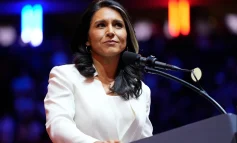Last Friday’s presidential and local council elections in Iran show that the Islamic Republic is far more stable and politically dynamic than Western conventional wisdom commonly acknowledges.
Moreover, the election of Hassan Rohani — who headed the Islamic Republic’s Supreme National Security Council for 16 years and was Tehran’s chief nuclear negotiator with the West for much of that period — presents Washington with an opportunity, for Rohani understands the U.S.-Iranian diplomatic agenda in an existential, granular way.
If the Obama administration wants to engage a new Rohani administration effectively, and to put U.S.-Iranian relations on a more positive trajectory, it will need to overhaul U.S. policy in four fundamental ways:
First, Washington must accept the Islamic Republic as an enduring political entity, representing legitimate national interests. Virtually since the Islamic Republic’s creation out of the Iranian Revolution, American elites have declared it is an illegitimate order, so dysfunctional and despised by its own population as to be at imminent risk of overthrow.
In reality, the Islamic Republic is a legitimate order for most Iranians living in Iran. Its animating idea — the ongoing project of integrating Islamist governance and participatory politics — appeals not just in Iran, but to Muslim societies across the Middle East.
Despite decades of military, clandestine, and international economic pressure, it has achieved more progressive developmental outcomes — e.g., in alleviating poverty, delivering health care, expanding educational access, and (yes) improving opportunities for women — than the Shah’s regime ever did, and has done better in these areas than its neighbors (including U.S. allies like Saudi Arabia and Turkey).
The election of Rohani, a moderate conservative, hardly signifies a fundamental challenge to the Islamic Republic (despite the wishful thinking of some who overestimated the Green movement’s significance four years ago). On the same day that Rohani won the presidency, conservatives took 70 percent of the more than 200,000 local council seats up for grabs across Iran.
In short, the Islamic Republic isn’t going anywhere. Even among Iranians who want the Islamic Republic to evolve significantly, most of them still want it to be, at the end of the day, an Islamic Republic of Iran.
Washington needs to accept this reality if it wants to negotiate productively with Tehran. Among other things, acceptance would mean calling off the “dirty war” America is conducting against the Islamic Republic — including economic warfare against civilians, threatening secondary sanctions against third countries in violation of U.S. WTO commitments, cyber-attacks, and support for groups doing things inside Iran that Washington elsewhere condemns as “terrorism.”
When President Richard Nixon took office in 1969, believing it was strategically vital for America to realign relations with the People’s Republic of China, he ordered the CIA to stand down from covert operations in Tibet, and ordered the Seventh Fleet to stop aggressive patrolling in the Taiwan Strait. Nixon did these things so that when he reached out diplomatically to the Chinese leadership, they would know he was serious.
The Iranian leadership needs to see comparable steps from President Obama, rather than the farce of Obama’s “dual track” policy, whereby Iran is threatened with the “stick” of open-ended intensification in America’s dirty war if it won’t surrender its internationally-safeguarded nuclear program for the “carrot” of perhaps being allowed to buy airplane spare parts from the West.
Second, Washington must deal with the Islamic Republic as a system and stop trying to play Iran’s public against its government. On a positive note, the White House press statement about the Iranian presidential election refers to Iran by its official name — “Islamic Republic,” something the Obama administration has refused to do since 2009.
But the statement does not congratulate Rohani; it congratulates the Iranian people “for their participation in the political process, and their courage in making their voices heard … against the backdrop of a lack of transparency, censorship of the media, Internet, and text messages, and an intimidating security environment.” Such a posture will not facilitate productive diplomacy after Rohani takes office.
Similarly, Washington should stop looking for Iranian “moderates” who, by U.S. definition, are moderate only because American officials believe they might be willing to subordinate some of Iran’s sovereign prerogatives for more economic ties to the West.
The Clinton administration tried working around Ayatollah Khamenei and dealing only with reformist President Mohammad Khatami during Khatami’s first term. A decade later, the Obama administration tried working around President Mahmoud Ahmadinejad and dealing directly with Khamenei. Every time, the tactic fails — and will fail again if Obama repeats it on a newly inaugurated President Rohani.
The Islamic Republic was designed to encompass multiple, competitive power centers — e.g., the Supreme Leader, the presidency, parliament. As Leader, Khamenei has allowed three presidents — Ali Akbar Hashemi Rafsanjani, Mohammad Khatami, and Ahmadinejad — to pursue very different, self-defined agendas, but has also restrained them when he judged their agendas might weaken the Islamic Republic’s identity and long-term security. Khamenei’s relationship with President Rohani is likely to play out in similar fashion.
Washington does not help its cause by trying to manipulate one power center against another. In Tehran, deciding to realign relations with America will take a consensus — a consensus encompassing both Leader and President.
Third, Washington must recognize Iran’s legal right, as a sovereign state and as a party to the Nuclear Non-Proliferation Treaty, to enrich uranium under international safeguards.
As we wrote last month, “If Washington recognized Iran’s right to enrich, a nuclear deal with Tehran could be reached in a matter of weeks”; but “as long as Washington refuses to acknowledge Tehran’s nuclear rights, no substantial agreement will be possible.” This will be no less true under President Rohani than it has been previously.
There is a strong consensus in Iran — cutting across the factional spectrum, ratified by Ayatollah Khamenei, and supported by public opinion — that the Islamic Republic should not surrender its nuclear rights.
In this year’s election campaign, Rohani was criticized for his approach to nuclear diplomacy with the West; in 2003-2005, during Rohani’s tenure as nuclear negotiator, Tehran agreed to suspend uranium enrichment for nearly two years, and got nothing from the West in return.
Rohani — who holds advanced degrees in both Islamic law and civil law — vigorously defended his record, arguing that his approach helped Iran avoid sanctions while laying the ground for subsequent expansion of its enrichment infrastructure. Looking forward, he explicitly committed himself to defending the Islamic Republic’s right to enrich. There will be no nuclear deal absent U.S. acknowledgement of that right.
Fourth, Washington must stop cooperating with Saudi Arabia and others to spread violent, al-Qa’ida-like Sunni extremism across the Middle East as part of an ill-conceived strategy for containing Iran.
This strategy is currently on display in Syria, where, from the onset of unrest in 2011, the Obama administration has sought to use an opposition increasingly manned and supported by foreigners to overthrow the Assad government and damage Tehran’s position. The administration is now stepping up support for the opposition — saying explicitly this is intended to prevent Tehran and its allies from “winning” in Syria.
The Islamic Republic has demonstrated that it can be a constructive partner in fighting the spread of violent Sunni extremism. By escalating the conflict in Syria, Washington will, first of all, enable the deaths of tens of thousands more Syrians; it will also — as it has done before (e.g., in Afghanistan and Libya) — incubate a long-term security threat to itself and to all countries with an interest in Middle Eastern stability.
The only way out of the Syrian conflict is serious diplomacy that facilitates a political settlement between the Assad government and its opponents. Iran is critical to achieving this.
If Washington really wants better relations with Tehran following Rohani’s election, the course is clear.
— Flynt Leverett served as a Middle East expert on George W. Bush’s National Security Council staff until the Iraq War and worked previously at the State Department and at the Central Intelligence Agency. Hillary Mann Leverett was the NSC expert on Iran and – from 2001 to 2003 – was one of only a few U.S. diplomats authorized to negotiate with the Iranians over Afghanistan, al-Qaeda and Iraq. They are authors of Going to Tehran. Versions of this story previously appeared in The Hindu and the Huffington Post.





Leave a Reply